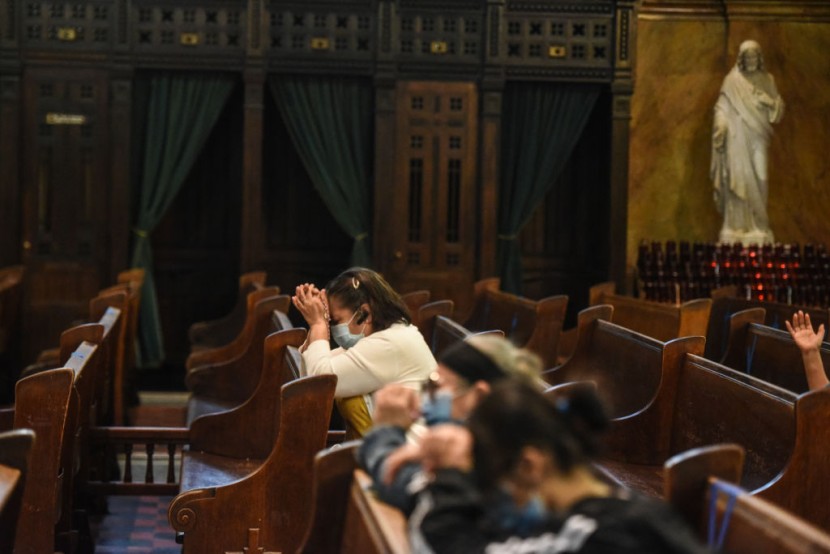
Despite the threat of a second wave of coronavirus infections, the Supreme Court temporarily barred New York from enforcing specifications regarding attendance limits at houses of worship in areas that are still hard hit by the pandemic on Wednesday.
The court granted the said requests made by the two Orthodox Jewish congregations and the Roman Catholic Diocese of Brooklyn on a 5-4 vote.
New York Governor Andrew Cuomo decided on October 6 regarding the shutting down of the non-essential businesses in targeted areas due to the spike of infections, including many Brooklyn neighborhoods.
The religious groups sued to challenge attendance limits at houses of worship in locations tagged as red and orange zones, wherein New York had imposed capped attendance at 10 and 25 individuals.
With new Justice Amy Coney Barrett in the majority, the justices split 5-4 to bar the state from enforcing the attendance restrictions against the religious groups temporarily, CBS News reported.
Read Also: NYC's First Black Mayor, David Dinkins, Dies at 93
It was the first public discernible vote by Barrett as a justice since she joined the court on October 26.
Chief Justice John Roberts, together with three other court's liberal justices, dissented.
Earlier this year, the court turned away previous cases on 5-4 votes for similar requests made by the religious groups in California and Nevada.
The previous votes happened before the death of liberal Justice Ruth Bader Ginsburg and saw her together with her three liberal colleagues joined by Roberts in the majority.
During the latest case filed, the Supreme Court justices acted on an emergency basis while challenging the said limitations.
A majority of the court stated that the restrictions single out houses of worship for especially harsh treatment in an unsigned order.
The court's latest action could push New York to proceed with the reevaluation of their currently imposed restrictions in the state.
According to NBC, but the action made by the court also will not have any direct impact on the two religious groups that sued as a result of the restrictions, as they are no longer subject to them, as the groups are currently subject to lesser-restrictive rules due to they are located on areas tagged as yellow zones.
The two groups emphasized that the imposed limits violated religious freedoms protected by the United States Constitution's First Amendment. Their facilities or places of worship were singled out for more stringent restrictions than essential businesses, such as food stores, ABC7 reported.
The Orthodox congregations and Agudath Israel of Madison and Agudath Israel of Kew Garden Hills and nationwide Orthodox Jewish group Agudath Israel of America are among them.
The Diocese of Brooklyn, which is covering the areas of Queens and Brooklyn, argued houses of worship were unfairly singled out by the executive order of the governor, which states that in red zones, businesses deemed essential, from grocery stores to pet shops, can continuously operate without capacity limits, though non-essential companies had to close.
In orange zones, the majority of the businesses can operate without any imposed capacity restrictions.
For the side of New York, they told the court that religious gatherings were being treated less restrictively than secular gatherings that carried the same risks of infections, like theatrical performances and concerts, which were prohibited totally.
Related Article: Xi Jinping Pushes for Global COVID-19 QR Code to Ease International Travel and Business Tracking
© 2025 HNGN, All rights reserved. Do not reproduce without permission.








